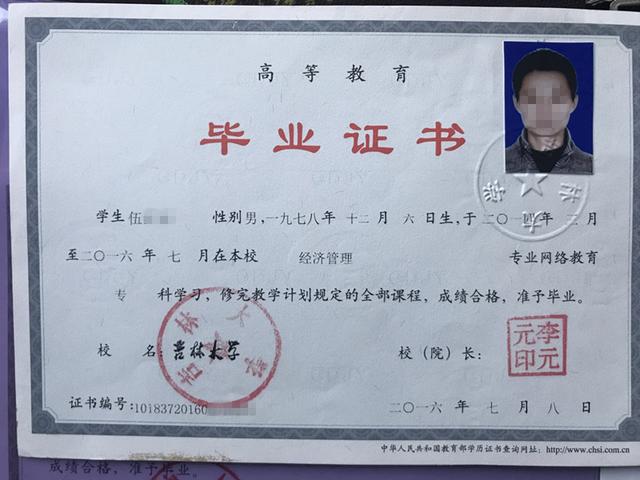高考语法填空语法知识归纳(名师解读高考15大语法考纲要点-第三章)
七、动词不定式: “to 动词原形” 叫不定式,现在小编就来说说关于高考语法填空语法知识归纳?下面内容希望能帮助到你,我们来一起看看吧!

高考语法填空语法知识归纳
七、动词不定式: “to 动词原形” 叫不定式。
不定式的用法:
1作主语To learnEnglish is very important.
注意:不定式作主语可以换成It作形式主语,把真正的主语不定式放在后面。
It is veryimportant to learn English.
不定式作主语要注意一致性:
To see is tobelieve.= Seeing is believing.
To live is tostruggle.= Living is struggling.
To teach is tolearn = Teaching is learning.
To say is easierthan to do. = Saying is easier than doing.
(不定式做主语和动名词区别:不定式表示具体动作,动名词表示习惯性动作)
Swimming is myfavourite sport, but to swim in this pool is dangerous.
2.作宾语
下列动词后常跟不定式作宾语:
hope, wish, want, manage, refuse, decide,pretend, determine. promise, expect, agree, choose, ask, fail, offer,learn, discuss, plan, care, help等
如:Heexpects to manage to learn her promise, but he fails to see her.
巧记下列动词后跟不定式和动名词意义一样:
continue, begin/ start, love, like, prefer, hate “继续,开始,爱,憎分明”
特大重点:
1.主语 want/ need/ doing或to be done(意思是主语需要被做)
1.The radio needs to be fixed/ fixing. 2.His shoes wanted to be mended/ mending.
3.Thepatient needed/ wanted/ required/ desired to be looked after/ looking after
2.主语 want/ need / require/ deserve to do 表示主动形式
1. He needs to look after the baby, and thebaby needs to be looked /looking after.
下列9大词后跟to do与doing 意义不同:
try to do 企图/尽力去做… trydoing 试着去做…
go on to do 接着干另一件事 go on doing 继续干同一件事
mean to do 打算干… meandoing 意味着…
stop todo 停下来去做… stopdoing 停止做…
remember to do记住去做… remember doing 记得做过…
forget todo 忘记去做… forgetdoing 忘记做过…
regret todo 后悔要做… regretdoing 后悔做过…
only todo 结果出乎意料… onlydoing 自然而然产生的结果
can’t help todo 不能帮助做 can’t help doing 禁不住做…
1.He hurried to the station, only to findthe train had left.
2.He lifted the stone, only to drop it ontohis own feet..
3.. Haveyou ever changed an answer on a test, _____ out later that your first answer wasthe right one?
A. onlyto find B. finding C. havefound D. to have found
3. 1)巧记不定式作宾语补足语不带to:
一“感”(feel) 二“听”(hear, listen to),“看”有五(see, look at, watch, notice, observe); let make 和 have
1.Don’t let him do heavy work.
2.I often hear her sing and see her dancein the next room.
3.Heoften made his little brother cry, but today he was made to cry by his littlebrother.
2) 不定式作宾语补足语带to的词组:
ask sb to do sth,tell sb to do sth, want sb to do sth, wish sb to do sth,
order sb to dosth, persuade sb to do sth, advise sb to do sth,
promise sb to dosth, allow sb to do sth, permit sb to do sth,
切记:不用 hope sb to do sth 和 agree sb to do sth
4.后跟it 作形式宾语的5个动词:
find/ feel/ make/ think/ consider it adj/ n todo
巧记法:
find, feel 和 make 莫忘think, consider,它们后若跟it, 形/名、不定(式)紧跟着。
1.I find it important to learn English.2.He feels it a duty to help others.
3.That made it necessary for him to make aliving by earning money.
5 不定式作表语:
☆.happento do 碰巧… seem todo/ appear to do
When I got off thebus, it happened to be raining.
☆.be todo be to blame for be to let (出租) as if to do(似乎将做)
His wish is tobecome a teacher.
She is to see hermother off at the airport tomorrow.
6 不定式作状语:不定式只作目的状语,译为“为了,以便…”
He came here to seeyou.= He came here in order to see you.
= He came here soas to see you.
注意:so asto 不能放在句首,in order to 可以放在句首。
注意:不定式作状语时,放在句中时,前面一定不用逗号。若有逗号,要用-ing 分词作状语,表伴随。
He got on the bus to attend the meeting.=He got on the bus, attending the meeting.
He stood up, leaving the room silently.= Hestood up to leave the room silently.
7.不定式作定语:不定式作定语要放在所修饰的名词后面
He has a lot ofwork to do. I have many clothes to wash today.
注意: 不定式作定语, 若动词是不及物动词后一定要跟个合适的介词。
He finds arestaurant to eat in. =in which to eat
She has a littleroom to live in. =in which to live
He gives me a pento write with. =with which to write
I have a piece ofpaper to write on. =on which to write
She wants onedollar to buy you a present with. =with which to buy you apresent.
He offered her abed to sleep on / in. =in which to sleep
I have raised atheory to base my thinking on . =on which to base my thinking.
8.不定式的复合结构:
下列句型是不定的复合结构的一个特大重点句型,请同学们务必要记住。
Itis adj/ n for object to do/ It is adj / n of object to do
注意若形容词是表示人的性格特征时,用of 不用for.
表示人的性格特征的形容词常见的有:好心的(人)聪明有礼貌,残忍的(人)虽勇敢,但错误、愚蠢。即:kind/good, clever/ smart/ wise, polite. cruel, brave, wrong, foolish/ stupid/ silly.
e.g. It isimportant for us to study English. It is foolish of him to believeher.
9.省略to的固定句式:
1)had better do=may/ might as well do 最好…
2)would ratherdo 但愿.
3)nothing but的句型:
nothing 前有do(did does doing done), but 后跟动词定无to
nothing 前无do(did does doing done), but 后跟动词定有to
如:1.He didnothing but sleep. 2. He ate nothing but to sleep.
3.The boy studiednothing but to play all day.
4)宁可…..决不……(三句型)
would rather do than do=prefer to do rather thando=prefer doing to doing
他宁愿死也决不投降。
He wouldrather die than give in.=He prefers todie rather than give in.
=He prefers dying to giving in.
Why not do? What hewants to do is (to)help you.
The only thing hecan do is (to) comfort her.
反射不定式: 物 adj to do (无被,无宾 );如:The box is too heavy to carry.
If the goods are cheap to buy butexpensive to sell, you can make money.
八、宾语从句
作宾语的不是一个词,而是一个句子,叫宾语从句。
1 当宾语从句是陈述句时,用that引导,that 可以省略。
他说他是个医生。 Hesaid (that) he was a doctor.
或用 Hesays (that )he is a doctor.
他说她明天将去北京。 Hesays (that) she wil l go to Beijing tomorrow.
老师说光比声音传播的快。
Theteacher said( that) light travels faster than sound.
2 当宾语从句是疑问句时,仍用原来的疑问词引导,但一定要用陈述语序,前后时态一致。
他问我叫什么名字。 Heasked what my name was.
你知道他们在等谁? Doyou know whom they are waiting for?
我想知道他什么时候将出发。 Iwonder when he will set off.
3 当宾语从句含有“是否”时,用if 或 whether .
我不知道是否他明天将会来这里。
I don’t know if/whether he will come tomorrow.
他问是否他通过了考试。 He asked if / whether he had passed the exam.
4.that 和what 引导的宾语从句的区别:
主、宾齐全用 that, 主宾不全用what.
I don’t know______he wants to say. 填 what, 因为say后无宾语。
I don’t know _____he wants to say the thing.填 that因为 say 后有宾语。
练习:填what 或that
1).He doesn’t know_______the camel looks like.
2).He gives me________ she needs.
3).He gives me________ she needs the thing.
4).Please tell me______ you know.
5).Please tell me______ you know the matter.
6).I don’t know________ he wanted to say.
7).I couldn’t hear_____he said on the phone.
The keys: 1)what 2) what 3) that 4) what 5)that 6) what 7) what
【宾语从句热点试题自测】
1)He toldme _____ he wanted to need. A. that B.what C. × D. which
2) I don’t know ______. A. howmuch does it cost. B. how much is it cost
C. how muchit cost. D. how much it costed.
3) I wondered _______.
A. what is hisname. B. what his name is
C. what his namewas D. what was his name
4) She didn’t know ______he would beinvited to the Party or not.
A.whether B. that C.what D.×
5) Can you tell me ______the railwaystation?
A. how I can getto. B. how can I get to
C. where I can getto D. where can I get to
6) Give it to _______you think can do thework well.
A. whoever B.who C .whomever D. whatever
7)It is considered unwise to give a child________he or she wants.
A.however B. whatever C. whichever D. whenever
8)______in the newspaper that the JapaneseMinister will arrive here next Monday.
A .He issaid B. It has said C. Itis said D. It says
9) Dr Black comes from NewYork or Chicago ,I can not remember ______.
A.which B. where C.that D. what
10. It is said _______ has been translatedinto Chinese.
A.that B.which C. that that D.that which
腾讯认证蔡章兵主编qq757722345空间和奇速英语微信公众号qisuen每天3-5篇资源免费更新,欢迎关注以便第一时间获得及时更新资源。
九、主谓一致
1.⑴ and连接两个或两个以上的名词或代词做主语时,谓语动词用复数。如:
Tomand I are in the same class.
Airand water are very important to us.
⑵and的连接两个名词前有the ,后无the ,是指同一人;都有the 时指两个人
⑶and 连接两个名词若被each, no,或every 修饰时谓语动词用单数。
如:Every boy and every girl is good.
2. 主谓一致中的就近原则
◆当there be 句型的主语是一系列事物时,谓语应与最邻近的主语保持一致。
There isa pen, a knife and several books on the desk..
Thereare twenty boy-students and twenty-three girl-students in the class.
◆当either… or… 与neither… nor,not only…but also 连接两个主语时,及not...but ,not, 连接的两个主语谓语动词与最邻近的主语保持一致。
如果句子是由here, there引导,而主语又不止一个时,谓语通常也和最邻近的主语一致。Either you or she is to go.
Hereis a pen, a few envelops and some paper for you.
He notyou is to blame. Not you but he is to apologize to the teacher.
3就远原则:以as well as, together with ,but/except, .
He aswell as I is a professor.
Theteacher with his students is coming here tomorrow.
All butTom were here lastnight.
4.以the adj, 表示一类人或the 姓 s 表示…的一家人,谓语动词要用复数。
Thepoor/ rich/ living/ dead /old/ young/injured are there.
TheSmiths are eating in the restaurant now.
5.表示金钱,距离,时间的复数作主语时,谓语动词要用单数。
Onehundred dollars is not enough.
Fiftymiles is not a long way.
Tenthousand years is too long for us to wait.
6. thegovernment, family, team, class等集合名词做主语时,若强调各个成员谓语动词用复数,若强调整体谓语动词用单数。
Hisfamily is a big one.
Hisfamily are watching TV now.
7.thenumber of 表示…的数目,作主语时,其谓语动词用单数,a number of= many加名词复数作主语时其谓语动词用复数。
Thenumber of the students is 100 in this school.
A numberof boys are playing football now.
8.分数或百分数作主语时谓语动词要和of 后的名词保持一致。
Five sixths of the books have beensold out in this store.
Three fourths of the water ispolluted in this river.
70 percent of the women in China arenot educated.
9.what引导的从句作主语时,其谓语动词跟后面的名词一致。
What hewants is time, and what she wants are books.
10.形单实复:即集合名词people, cattle,police作主语时,谓语动词要用复数。
The police are searching the robber.
works (著作),maths, physics, politics, the UnitedStates, The United Nations.
如;TheUnited States is made up of fifty states.
形复永复:The Olympic Games, goods, trousers,glasses, clothes.
单复同形:根据意义决定谓语动词。
means(方法),deer, sheep, fish, Chinese, Japanese.
Every means has beentried, but they failed at last.
Many means have beentried, and they are successful.
11.定语从句中的谓语动词要和先行词一致:
I, whoam your teacher , should be strict with you.
12.六个不定代词作主语的主谓一致:
None ofthem is / are good. Either of them is good
Neither ofthem is good . Each ofthem is good.
All of them are good Bothof them are good.
【热点试题自测】
1. Thenumber of the teachers of our school _____ about one hundred, and two
thirdsof them ____ women teachers.
A. is,is B. is, are C. are,is D. are, are
2 Neither you nor Li Hua tothe Great Wall.
A. havegone B. has been C. have been D. has gone
3.Threeyears_____ a short time. You have to study hard.
A.are B.is C. was D. were
4.The mother with two children often______to the town.
A. aregoing B. isgoing C. goes D. go
5.His family _____ a large one. The wholefamily_____ watching TV now.
A. is,is B. is, are C. are,is D. are, are
6.All the classmates excepTom_______interested in dancing.
A. is B.are C .am D. be.
6Lily as well as herparents______ to the park every Sunday.
A. are going B. isgoing C. goes D. go
7. They each ______ an English-Chinesedictionary.
A.owns B.is C. has D. have
7.Each of them_____ an English-Chinesedictionary.
A.own B.is C. has D. have
8.He isone of the boys who___ ill, and she is the only one of the girls who____ illtoday. A. is, is B. is,are C. are, is D. are, are
《蔡章兵奇速英语高效学习法》正在向全国招收初高中各年级学生
我们承诺:100分及以下的学生保证涨20-40分;100分以上的学生保证涨10-30分,签订正式合同,不达目标全额退费!
学习形式:独家奇速英语高效学习法专题讲座(网上) 作业 线上辅导相结合的模式。 学习时间:学制一年(快的学生就两三个月可以达到签约涨分目标)
特别要求: 每周周末一次网络授课,听课必须要求能上网;每周七天要求完成5次线上或者线下作业(20-30分钟/每次);做不到以上要求者,请勿报名!
十、倒装:分全部倒装与部分倒装
㈠全部倒装:把整个谓语动词不经变形放在主语前面。以下七大副词/ 或介词短语放在句首,谓语动词要全部倒装。
here, there, up, down , in ,out, away.
1.The boycame here. →Here came the boy.
2.The girlran up . →Up ran the girl.
3.The thiefran away. →Away ran the thief.
4. The womanrushed in. → In rushed the woman.
全部倒装1不能
即使七大副词放在句首,若主语是人称代词不能倒装
Here youare. Here it is.
如:1 It ishere→Here it is. 2.They are here→Here they are.
3. Hewent there→There he went.
㈡部分倒装 :
◆把动词,情态动词,助动词放在主语前. 部分倒装共五条:
(1)以only 修饰的副词,介词短语或状语从句放在句首, 谓语动词部分倒装
He knewme only then.→Only then did he know me.
He lovesyou only today.→Only today does he love you.
You cando it only in this way.→ Only in this way can you do it.
You are able tojoin the army only at the age of 18.
→Only at the age of18 are you able to join the army.
◆只有only一词放句首,句子不倒装.
He eatswell only.→Only he eats well.
(2) not only 与 not until放在句首倒装的区别.
Not only ishe our teacher, but also he is our friend.
Notuntil he came back last night did his son go to bed.
Hedidn’t marry until he was 40.→Not until he was 40 did he marry.
Hedidn't go to bed until 12 o'clock.→ Not until 12 o'clock did he go to bed.
(3).Hardly.....when 与 nosooner .....than
hardly had 主 过去分词 when 主语 动词过去式
no sooner had 主 过去分词 than 主语 动词过去式
1. Hardly ______when it began to rain.
A didhe sit down B he sat down C had he satdown D he had sat down
3.No sooner had hegone out______ it began to rain.
Awhen B then C than D before
(4).neither, nor,hardly, never, seldom, few, little, at no time( 绝不);
inno condition( 无条件),nowhere,
in/underno circumstances(无论如何决不);
by nomeans ( 绝不) 等否定词放在句首,谓语要部分倒装。
切记: inno time=at once 立刻;马上,所以放在句首不倒装如:
In notime he came to hospital.
Hehardly eats anything.→ Hardly does he eat anything.
Henever tells a lie.→Never does he tell a lie.
Heseldom went there.→Seldom did he go there.
He haslittle money.→Little does he have money.
(5)四个句型的倒装
①so ...that....如此...以至于...句型中; so 形容词或副词放句首, 谓语动词要部分倒装. 如:
He wasso excited that he couldn't go to sleep.→
Soexcited was he that he couldn't go to sleep .
②表示甲... 乙也... (分5种情况)
1.He likesyou , so do I. 2. Hedoesn't like you , neither /nor doI .
3. If helikes you, so will /shall I. 4. If he doesn't like you, neither will/shall I .
5. Helikes you but he doesn't like her, so it is with me.
③ as当意为虽然尽管倒装分四种情,although不倒装。
1.Although he isyoung , he knows a lot.→ Young as he is , he knows a lot.
2.Although he is achild, he knows a lot.→Child as he is , he knows a lot.
3. Although hetried , he failed.→Try as he might,he failed.
4.Though he lovesher deeply, he hates her.→Deeply as he loves her, he hates her.
④ If 后若是were,had,should 时,if 可以省略,三词可以提前。
1.If I were you, Iwould go there. →Were I you, I would go there.
2.If he had eaten it, he would have died. →Had he eaten it, he would have died.
3.If it should snowtomorrow,we would play a snow game. →
Shouldit snow tomorrow, we would play a snow game.
十一、虚拟语气
一、真实条件句: 句形结构:if 主语 一般现在时,主语 will 原形
1. Ifit rains tomorrow, I will stay at home.
2. If youhelp me, I will happy.
3. Ifhe______here tomorrow, he will be invited.
A iscoming B comes C will come D came
二、非真实条件句(虚拟语气)
IF分三种情况:
⑴表示与现在事实相反 : if 主 过去式 (be用were ); 主句 would 原形
If Iwere you, I would go there, but I am not you.
If shewere a boy , her mother would be glad.
(2)表示与过去相反:if 主语 had 过去分词; 主句 would have 过去分词
1. Ididn't know him. If I had known him, I would have rung him
2. He didn't comehere yesterday. If he had come here, he would have been happy.
⑶表示与将来事实相反
i f 主语 过去式(be用 were)/ were to v /should v; 主句 would v原形
1.If Ibecame a monk next life , I would go to SL temple.
=If Iwere to become a monk next life , I would go to SL temple.
=If Ishould become a monk next life , I would go to SL temple.
2. What would we doif the earth______turning ?
A wouldstop B should stop C had stopped Dwill stop
◆If 后若是were,had,should 时,if 可以省略,三词可以提前。
1.If Iwere you, I would go there. →Were I you, I would go there.
2.If hehad eaten it,he would have died. →Had he eaten it, he would have died.
3.If itshould snow tomorrow,we would play a snow game.
→Shouldit snow tomorrow, we would play a snow game.
◆混合虚拟语气经典一句型:
if 主 语 had 过去分词; 主 语 would 动词原形 now
前半句与过去相反,后半句与现在 相反
混合虚拟if 后面加过完, 主句 would 加动原,后面有now 是关键
1.If he ______lastnight early, he___________now.
A hadbeen sent to hospital; would have been alive
B hadbeen sent to hospital ; would be alive
C wouldbe sent to hospital ; would be alive
D wereto be sent to hospital; will be alive
2.If he ______ ,he______ the exam now.
A hadstudied ; would pass B had studied; would have passed
Cstudied ; would pass D would studied ; wouldpass
◆as if =as though 主语 过去式表示与现在相反
as if =as though 主语 过去完成时表示与过去相反
1. Ifyou put a stick into water,it looks as if it _______broken .
Ais B were C willbe D had been
2.He lies there asif he _____adog.
Ais B were C willbe D had been
◆含有but 的虚拟语气:
1.If he had boughtthe book, he would have lent you, but he _____it.
A don'tbuy B didn't buy C wouldn'tbuy D hadn't buy
2.If we saw her, wewould tell you, but we don't see her .
3.-----If we hadbeen on foot, we would have walked there.
---Yes, the taxi______ necessary.
A wasn't Bisn't C hadn't been D wouldn't be
注意:but 虚拟语气中后面只有两种时态:一般现在时与一般过去时。
4十大动词后跟的虚拟语气(巧记一二 三四)
即:一坚持(insist)
二命令(command order)
三要求(demand request require)
四建议(suggest recommend propose advise)
以这十大动词引导的宾语从句,用should v 原形, should 可以省略。
1.Hesuggested we _______there. A will go B shouldgo C went
2.Iinsist that he ______there. Agoes B go Cwent D will go .
注意:suggest 当“暗示”,insist “当坚决认为”时, 后跟的宾语从句前后时态要一致,不用虚拟语气。
用虚拟语气三星句
☆① itis ( high / about)time 主语 过去式
☆② 主语 would rather 主语 过去式
☆③ ifonly 主语 过去式 译为“要是……该多好 ”
1.It istime you ______home. A go B went Cwill go D would go
2.Iwould rather he______ here. A will come Bcome C came D comes
3.Ifonly he were careful!
4.----Didyou see the film. ---- No. but I wish I_____.
Asaw B see C had Ddid
5. Hedied, I wish he ______. A didn't die B hadn'tdied C wouldn't die
◆附: 虚拟语气的特大重点句型:
if it had not been for sth /sb; =But for sth/sb; 要不是…的话;
如:If it had not been for your help, I wouldnot have succeeded.
,免责声明:本文仅代表文章作者的个人观点,与本站无关。其原创性、真实性以及文中陈述文字和内容未经本站证实,对本文以及其中全部或者部分内容文字的真实性、完整性和原创性本站不作任何保证或承诺,请读者仅作参考,并自行核实相关内容。文章投诉邮箱:anhduc.ph@yahoo.com






